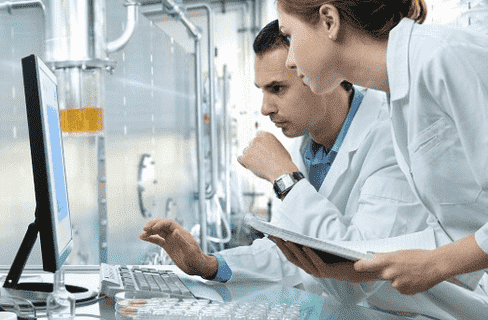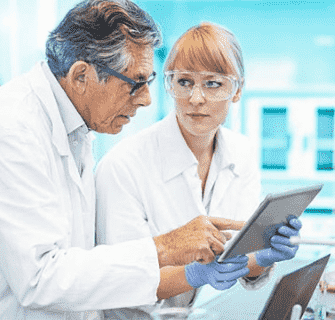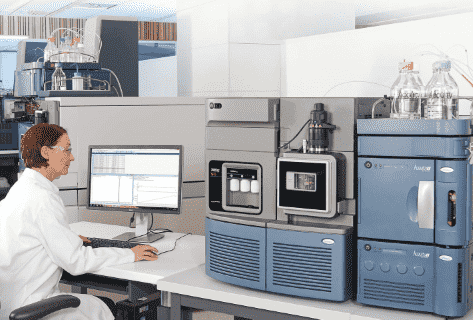COURSE OVERVIEW
LE0030 : Practical Statistical Analysis of Lab Data

OVERVIEW
| COURSE TITLE | : | LE0030 : Practical Statistical Analysis of Lab Data |
| COURSE DATE | : | Jan 12 - Jan 16 2025 |
| DURATION | : | 5 Days |
| INSTRUCTOR | : | Dr. Ian Kaloudis |
| VENUE | : | Al Khobar, KSA |
| COURSE FEE | : | $ 5500 |
| Register For Course Outline | ||
OTHER SCHEDULED DATES
| Date | : | Jul 20 - Jul 24 2025 (5 Days) | Location | : | Dubai, UAE | Classroom Fee (US$) | : | $ 5500 | Course Info |
Course Description
The purpose of any analytical measurement is to get consistent, reliable and accurate data. There is no doubt that incorrect measurement results can lead to tremendous costs. In addition, reporting incorrect analytical results at any particular time leads to loss of a laboratory’s confidence in the validity of future results. Therefore, any laboratory should do its outmost to ensure measuring and reporting reliable and accurate data within a known level of confidence.
Statistics is an integral part of quality assessment of analytical results. The concept of a frequency distribution, which embodies the behaviour of chance/random fluctuations, is essential for the description of many pertinent aspects of measurement. Statistical Inference based on the theory of probability and random variables, allows reliable conclusions to be drawn from data which are subject to error and variability. A quantitative measurement is always an estimate of the real value of the measure and involves some level of uncertainty. The limits of uncertainty must be known within a stated probability; otherwise no use can be made of the measurement. Analysis must be done in such a way that can provide this statistical predictability.
This course is designed for those faced with analyzing data from laboratories in support of R&D programs, pilot plant studies, plant operations, hospitals, medical centres, municipalities, food manufacturers, environmental protection departments and independent laboratories. Its purpose is to provide information concerning contemporary statistical methodology for individuals in the chemical process and allied industries as well as those in the health care and food fields. Emphasis is placed on the practicality and applicability of the techniques presented.
You will have the opportunity to apply the principles learned to actual problems through the use of illustrative case studies under the guidance of the instructor. The importance of graphical presentation of statistical results is emphasized. More complex statistical analyses and the statistical design of experiments are also presented. Through a combination of lectures and problem-solving sessions, you will learn new statistical techniques that you can put to immediate use in the workplace.
link to course overview PDF
Statistics is an integral part of quality assessment of analytical results. The concept of a frequency distribution, which embodies the behaviour of chance/random fluctuations, is essential for the description of many pertinent aspects of measurement. Statistical Inference based on the theory of probability and random variables, allows reliable conclusions to be drawn from data which are subject to error and variability. A quantitative measurement is always an estimate of the real value of the measure and involves some level of uncertainty. The limits of uncertainty must be known within a stated probability; otherwise no use can be made of the measurement. Analysis must be done in such a way that can provide this statistical predictability.
This course is designed for those faced with analyzing data from laboratories in support of R&D programs, pilot plant studies, plant operations, hospitals, medical centres, municipalities, food manufacturers, environmental protection departments and independent laboratories. Its purpose is to provide information concerning contemporary statistical methodology for individuals in the chemical process and allied industries as well as those in the health care and food fields. Emphasis is placed on the practicality and applicability of the techniques presented.
You will have the opportunity to apply the principles learned to actual problems through the use of illustrative case studies under the guidance of the instructor. The importance of graphical presentation of statistical results is emphasized. More complex statistical analyses and the statistical design of experiments are also presented. Through a combination of lectures and problem-solving sessions, you will learn new statistical techniques that you can put to immediate use in the workplace.
TRAINING METHODOLOGY
This interactive training course includes the following training methodologies:
LecturesWorkshops & Work Presentations
Case Studies & Practical Exercises
Videos, Software & Simulators
In an unlikely event, the course instructor may modify the above training methodology for technical reasons.
VIRTUAL TRAINING (IF APPLICABLE)
If this course is delivered online as a Virtual Training, the following limitations will be applicable:
| Certificates | : | Only soft copy certificates will be issued |
| Training Materials | : | Only soft copy materials will be issued |
| Training Methodology | : | 80% theory, 20% practical |
| Training Program | : | 4 hours per day, from 09:30 to 13:30 |
RELATED COURSES

LE0048 : Certified Laboratory Safety Officers
- Date: Jan 12 - Jan 16 / 3 Days
- Location: Istanbul, Turkey
- Course Details Register

LE0030 : Practical Statistical Analysis of Lab Data
- Date: Jan 12 - Jan 16 / 3 Days
- Location: Al Khobar, KSA
- Course Details Register

LE0160 : Gas Chromatography Operation, Application, Troubleshooting & Method Validation
- Date: Jan 19 - Jan 23 / 3 Days
- Location: Dubai, UAE
- Course Details Register
